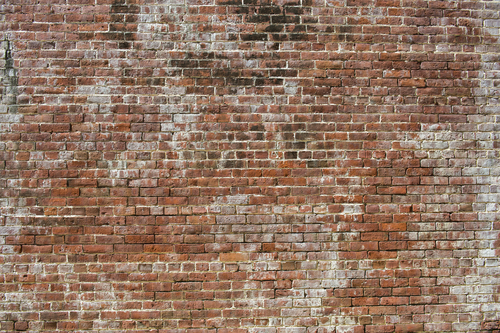 It’s a long-standing mystery in public health: despite the inarguably vast number of psychological and sociological stresses they face in the U.S., African Americans are mentally healthier than white people. The phenomenon is formally described as the “race paradox in mental health”.
It’s a long-standing mystery in public health: despite the inarguably vast number of psychological and sociological stresses they face in the U.S., African Americans are mentally healthier than white people. The phenomenon is formally described as the “race paradox in mental health”.
The paradox became apparent in the mid-1990s. Since then, an overwhelming majority of research has confirmed lower rates of most major psychiatric disorders, including depression, panic disorder, anxiety, and alcohol dependence. It’s not just an absence of problems: Cory L. M. Keyes of Emory University found that “even when assessed by a subset of the signs of overall (flourishing) mental health or the diagnosis of mental health as a complete state — the absence of mental disorders and the presence of flourishing — Blacks have better mental health than Whites.”
This has invited a lot of speculation. (Let’s quickly dismiss the ideas that African Americans are simply not going to the doctor, or drowning their sorrows in substances. These putative explanations have been thoroughly debunked.) More credible theories tie the improved mental well-being to more supportive family relationships. Or they point to what are called “fictive kin” relationships, a term that refers to the unofficial family structures that develop in communities where people, for one reason or another, choose not to settle into standard nuclear family structures.
But when Dawne Mouzon set out to tease apart whether these factors offered a credible explanation, they came up short. In an investigation published last week, Mouzon — a sociologist who teaches public policy at Rutgers University in New Jersey — dispensed with much of the received wisdom. For example, she writes that “neither the quality nor quality of family relationships can explain the race paradox in mental health.”
Instead, Mouzon concluded that “it is plausible that African Americans possess other resilience mechanisms (e.g., other social relationships, different types of coping strategies) that I was unable to consider here.”
I like that word: resilience.
 There’s a boatload of research into resilience, but most of it never really concerns itself with mental health or the African-American population. In fact, it’s usually couched in terms that reek of “stuff white people like”: mainly the steady increase in hand-wringing, over the past few years, about how we’re not teaching affluent kids to succeed properly. In the era of participation trophies, grade inflation, and helicopter parents threatening teachers who grade too low, it is said, our children are so insulated from life’s little failures that by the time they hit the big leagues and encounter a big Fail, they crumble. They just sink.
There’s a boatload of research into resilience, but most of it never really concerns itself with mental health or the African-American population. In fact, it’s usually couched in terms that reek of “stuff white people like”: mainly the steady increase in hand-wringing, over the past few years, about how we’re not teaching affluent kids to succeed properly. In the era of participation trophies, grade inflation, and helicopter parents threatening teachers who grade too low, it is said, our children are so insulated from life’s little failures that by the time they hit the big leagues and encounter a big Fail, they crumble. They just sink.
Not so the resilient ones. A New York Times article that examined unconventional teaching practices emphasized the importance of this trait, in terms of the role it played in preparing underprivileged kids to get all the way to a university degree.
“The students who persisted in college were not necessarily the ones who had excelled academically… They were the ones who were able to recover from a bad grade and resolve to do better next time; to bounce back from a fight with their parents; to resist the urge to go out to the movies and stay home and study instead; to persuade professors to give them extra help after class. … For young people without the benefit of a lot of family resources, without the kind of safety net that their wealthier peers enjoyed, [those skills] seemed an indispensable part of making it to graduation day.”
An educator at a more affluent school saw the inverse: “Our kids don’t put up with a lot of suffering. They don’t have a threshold for it. They’re protected against it quite a bit. And when they do get uncomfortable, we hear from their parents.” And then, later, when that kid suddenly finds him- or herself up against a difficult situation, they can’t handle it.
 African Americans, for the most part, don’t get much protection from suffering. Not just because they have to internalise things like this, and this, but because these tragedies may be followed by things like this. Because studies have suggested that if Lakisha or Jamal put their name on a resume, it will land it in a prospective employer’s “other inbox” even if the qualifications are identical to Brendan’s. Because white people ask to touch black people’s hair. Because it’s hazardous to drive while black. Or knock on a door for help while black. Because Miley Cyrus. In an exhausting catalog, overt and subtle, the message is that someone is always going to throw an obstacle under your feet either in terms of your ability to get a job, keep a job, or feel accepted as fully human within your society.
African Americans, for the most part, don’t get much protection from suffering. Not just because they have to internalise things like this, and this, but because these tragedies may be followed by things like this. Because studies have suggested that if Lakisha or Jamal put their name on a resume, it will land it in a prospective employer’s “other inbox” even if the qualifications are identical to Brendan’s. Because white people ask to touch black people’s hair. Because it’s hazardous to drive while black. Or knock on a door for help while black. Because Miley Cyrus. In an exhausting catalog, overt and subtle, the message is that someone is always going to throw an obstacle under your feet either in terms of your ability to get a job, keep a job, or feel accepted as fully human within your society.
So what would endow a person with resilience in the face of this unrelenting pestilence? That part’s never as clearly explained in these studies. Surely there’s no gene that encodes “grit”. So where does it come from?
It was the mental health paradox research that made me wonder whether resilience has something to do with expectations. To live in a hostile world without losing your mind, you need to manage your expectations. I admit I’m scratching at the ceiling of my own knowledge now, but I’ve read enough Audre Lorde and Zora Neale Hurston to get a mediated sense that black parents teach their children that an expectation of smooth, untroubled success is not their birthright. I don’t recall any Participation Awards in Their Eyes Were Watching God.
Keyes specifically explored the roots of resilience in a 2009 paper on the mental health paradox: “Resilience,” he wrote, “is … a risk factor that has been averted or mitigated or to which individuals have adapted or from which individuals have recovered.”
Insulating your kids from all suffering seems, on its face, like the best way to raise a well-adjusted, happy human. Taken together, though, resilience research and the mystery of the mental health paradox shed light on why the positive psychology doctrine fails. Sometimes optimism is delusional, and insisting on it sets the wrong expectations. Just to be clear: this is not a post in which I suggest that enduring a lifetime of discrimination comes with heart-warming silver lining. I’ll let Keyes play me out:
“Findings also show that controlling for perceived discrimination increases the Black advantage in 12 of the 13 signs of flourishing, suggesting that Blacks would have even better mental health were it not for discrimination.”
Photo credits: shutterstock
Look into the science of melanin.
Ha — well played sir! (Literally) thicker skin is Occam’s razor isn’t it.
These are curious findings in that issues of urban toxicity, studied under the rubric of environmental justice, would indicate increased mental illness. Communities of color almost always live in the most poisoned places in the US.
Anecdotally, prison workers I know report high correlation between incarceration, mental illness and lead poisoning. This article from San Antonio covers the topic fairly well and offers copious links to many, many studies.
To be sure, this is not to dispute the findings reported here. This only amplifies the level of resilience.
I think its obvious. We express ourselves. We do not repress. Hence better mental health.
To suggest that positive psychology has it wrong in terms of optimism isn’t quite on the mark. Positive psychology “doctrine” would include a reference to “realistic optimism” which described as the ability to maintain a positive outlook without denying reality, actively appreciating the positive aspects of a situation without ignoring the negative aspects. It means aspiring and hoping for positive outcomes, and working towards those outcomes, without assuming that those outcomes are a foregone conclusion. Realistic optimism does not assume that good things will happen automatically. Good things may happen, but effort, problem solving and planning are necessary to bring them about.
This kind of optimism is at the core of resilience, and resilience is a wonderful tool in the toolkit of working with mental health.
Long live realistic optimism.